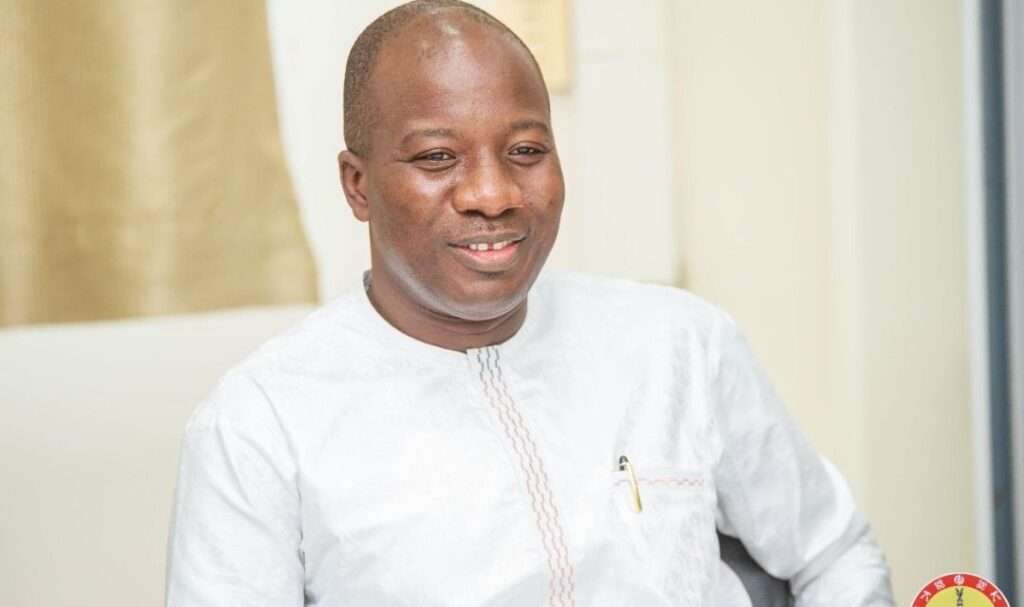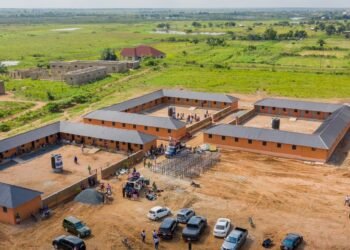Member of Parliament (MP) for Bawku Central, Mahama Ayariga, has expressed strong disapproval of the recent Supreme Court ruling that halted Speaker Alban Bagbin’s declaration of four parliamentary seats as vacant.
The lawmaker, during an interview, did not hold back his disappointment with the Supreme Court’s handling of the case, calling it “scandalous.” He voiced his dissatisfaction with the Supreme Court’s conduct, suggesting that the ruling undermines parliamentary authority and sets a troubling precedent for the relationship between the judiciary and legislature.
“I am scandalized. I am sad because I am one of those who sat on the Appointment Committee to vet some of them to be Judges and I assume that they understand the constitution.”
Hon. Mahama Ayariga, Member of Parliament (MP) for Bawku Central
Hon. Ayariga’s remarks came in response to a decision by the Supreme Court to stay execution of Speaker Bagbin’s declaration, which arose after four MPs allegedly violated constitutional provisions by absconding from parliamentary duties.
According to Hon. Ayariga, the four MPs had no right to contest the declaration, as they had been absent from Parliament on the day of the decision, effectively acknowledging their culpability.
The Bawku Central MP emphasized that, from his perspective, the judges should have better understood the constitutional provisions governing parliamentary processes.
The core of Ayariga’s argument rests on the fact that the four MPs did not raise objections to the declaration made by Speaker Bagbin, nor did they attend the parliamentary session where their seats were declared vacant.
“They were not there because they know they had violated the Constitution. Where have they complained that they were not heard? They did not want to be heard because they knew what they had done.”
Hon. Mahama Ayariga, Member of Parliament (MP) for Bawku Central
Allegations of Judicial Overreach

Hon. Ayariga went on to accuse the Supreme Court of overstepping its constitutional mandate, describing the court’s intervention as a violation of Article 115 of the 1992 Constitution.
“[This] states that no one shall interfere in the proceedings of Parliament… I think that this is the most flawed conduct by the Supreme Court, and it is embarrassing,” Hon. Ayariga added.
This perceived judicial overreach, according to Ayariga, threatens to undermine the autonomy of Parliament. He contended that the Supreme Court had no jurisdiction over the internal affairs of the legislative body, especially regarding decisions on the vacation of seats.
For Hon. Ayariga, this ruling marks a dangerous intrusion of the judiciary into the legislative sphere.
In addition to criticizing the specific ruling, Hon. Ayariga raised broader concerns about the priorities of the Supreme Court. He pointed to the speed with which the court acted on Afenyo-Markin’s petition, contrasting it with what he perceived as a lack of urgency on other important matters, such as the Anti-LGBTQ+ bill, which has been a topic of national debate for an extended period.
“Afenyo-Markin was able to move the Supreme Court to act with such dispatch, when all the Chief Imams, pastors, and religious groups have been begging the Supreme Court to take a decision on the LGBTQ question, and the court has refused to act.”
Hon. Mahama Ayariga, Member of Parliament (MP) for Bawku Central
For Hon. Ayariga, this apparent inconsistency raises questions about the motivations behind the court’s rulings and whether the judiciary is being influenced by political considerations.
Looking ahead, Ayariga hinted that the next parliamentary session, scheduled for October 22, could be eventful, as the fallout from the Supreme Court’s ruling continues to play out. “Tuesday is going to be an interesting day in Parliament,” he noted.
The Supreme Court’s decision to halt Speaker Bagbin’s declaration of vacant seats has ignited a broader conversation about the separation of powers in Ghana. The Bawku Central MP’s remarks highlight a growing concern among lawmakers about judicial overreach and the potential erosion of parliamentary independence.
As Parliament prepares to reconvene, the ongoing debate is likely to further strain the already fragile relationship between the legislative and judicial branches, with far-reaching implications for Ghana’s democratic institutions.
READ ALSO: MTN Shows Commitment To Sustainability Through Project Zero























